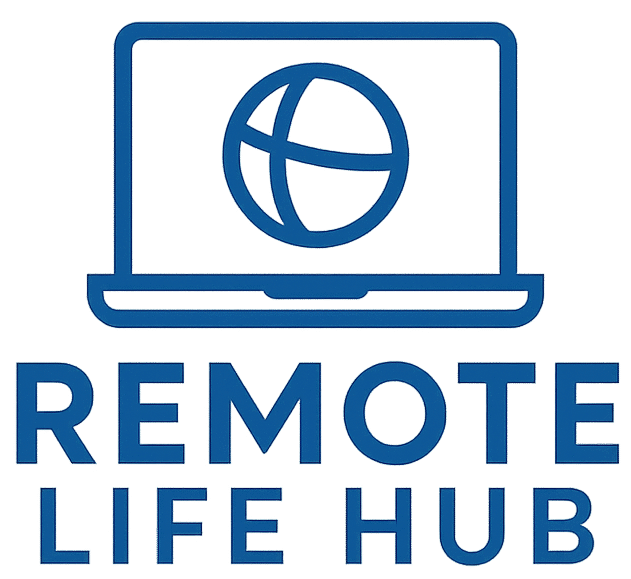Time Management Remote Work: How to Stay Focused and Productive from Home
Mastering time management remote work skills is one of the biggest challenges for professionals who work from home. While remote work gives you freedom and flexibility, it also demands self-discipline and clear boundaries. Without proper structure, distractions, procrastination, and burnout can quickly appear — turning the dream of flexible work into a daily struggle.
In this guide, you’ll learn how to manage your time effectively, stay focused, and create balance while working remotely. Whether you’re new to working from home or looking to improve your routine, these practical tips will help you thrive without losing your sanity or motivation.
1. Plan Your Day with Purpose
Effective time management remote work begins with intentional planning. Without a clear plan, you’ll likely start the day reacting to emails or distractions instead of focusing on meaningful goals. Planning gives structure to your day and helps you prioritize what really matters.
Morning Planning Routine
- Spend 10 minutes each morning reviewing your top three priorities.
- Write a to-do list that focuses on outcomes, not just tasks.
- Set realistic goals — overloading your schedule leads to frustration.
If you struggle to stay organized, read How to Stay Productive When Working From Home. It provides simple techniques to plan your day more effectively.
2. Use Time-Blocking for Better Focus
One of the most reliable techniques for time management remote work is time-blocking — dividing your day into dedicated blocks for specific tasks. This approach prevents multitasking and gives your mind the clarity to focus on one activity at a time.
How to Implement Time-Blocking
- Assign clear time slots for work, meetings, and breaks.
- Group similar tasks together — such as emails, creative work, or calls.
- Stick to your schedule and avoid shifting blocks unnecessarily.
Want to develop consistency with your habits? Check out 10 Simple Habits of Successful Remote Professionals for easy routines to strengthen discipline.
3. Eliminate Distractions in Your Environment
Good time management remote work habits start with creating the right environment. Your surroundings heavily influence your ability to concentrate. Background noise, clutter, or digital interruptions can easily derail your productivity.
Tips for Building a Focus-Friendly Workspace
- Silence non-essential notifications during work hours.
- Use noise-canceling headphones if your environment is noisy.
- Keep your workspace clean and separate from living areas.
For workspace inspiration, explore Simple Ways to Personalize Your Workspace — it shows how small changes can improve focus and motivation.
4. Set Clear Boundaries Between Work and Home Life
When your home becomes your office, it’s easy for boundaries to disappear. Poor separation between work and personal time is one of the top obstacles to effective time management remote work success.
Without boundaries, you may find yourself replying to emails at midnight or skipping breaks altogether. Over time, this leads to fatigue and frustration — making it harder to maintain focus during real work hours.
How to Reinforce Healthy Work Boundaries
- Decide your official work hours and communicate them clearly to others.
- Turn off work notifications after your shift ends.
- End the workday with a ritual — like taking a walk or tidying your desk.
To create more balance, read How to Maintain Work-Life Balance When Working Remotely for actionable ways to protect your time and energy.
5. Prioritize Tasks Using the 80/20 Rule
Not all tasks are equally valuable. Smart time management remote work strategies rely on identifying the 20% of activities that create 80% of your results. This helps you focus on what truly moves the needle instead of wasting time on busywork.
Steps to Apply the 80/20 Principle
- List all your daily or weekly tasks.
- Mark the few that have the greatest impact on your goals.
- Do those high-value tasks first — before meetings or messages consume your energy.
Need help staying consistent with your routines? Visit How to Stay Consistent in Remote Work Habits for practical techniques that make productive habits stick.
6. Leverage Tools That Simplify Time Tracking
Technology plays a big role in modern time management remote work systems. The right tools help track how you spend time, identify distractions, and optimize your workflow. But too many tools can do the opposite — adding unnecessary complexity.
Recommended Tools for Remote Time Management
- RescueTime — tracks digital activity to reveal time-wasting habits.
- Todoist or ClickUp — for task management and prioritization.
- Google Calendar — ideal for scheduling and reminders.
Use these tools to complement your discipline, not replace it. Automation should make your workday lighter, not busier.
7. Schedule Breaks and Time to Recharge
Even the best time management remote work routine will fail without proper rest. Productivity is directly linked to energy levels, not hours worked. Regular breaks restore focus and prevent burnout.
How to Take Smarter Breaks
- Follow the Pomodoro technique — 25 minutes of work, 5 minutes of rest.
- Take a full lunch break away from your screen.
- Move your body every couple of hours to refresh circulation and focus.
To keep your body and mind in sync, check out How to Stay Healthy and Active When Working Remotely — it’s full of easy, energizing routines.
8. Reflect and Adjust Each Week
Improving time management remote work skills takes reflection and adjustment. At the end of each week, review how you used your time. Look for patterns: what helped you stay focused and what caused distractions?
Weekly Reflection Checklist
- Which tasks took longer than expected?
- Did you spend enough time on your top priorities?
- What habits made your week more productive?
This self-assessment ensures continuous growth and makes each new week more productive than the last.
Final Thoughts
Strong time management remote work habits are the foundation of a balanced and successful career. By planning your day, minimizing distractions, setting boundaries, and reviewing your progress, you can achieve more with less stress.
Remember: managing your time effectively isn’t just about efficiency — it’s about designing a life where work supports your goals, not the other way around. Once you master this balance, remote work becomes not just productive but truly fulfilling.

